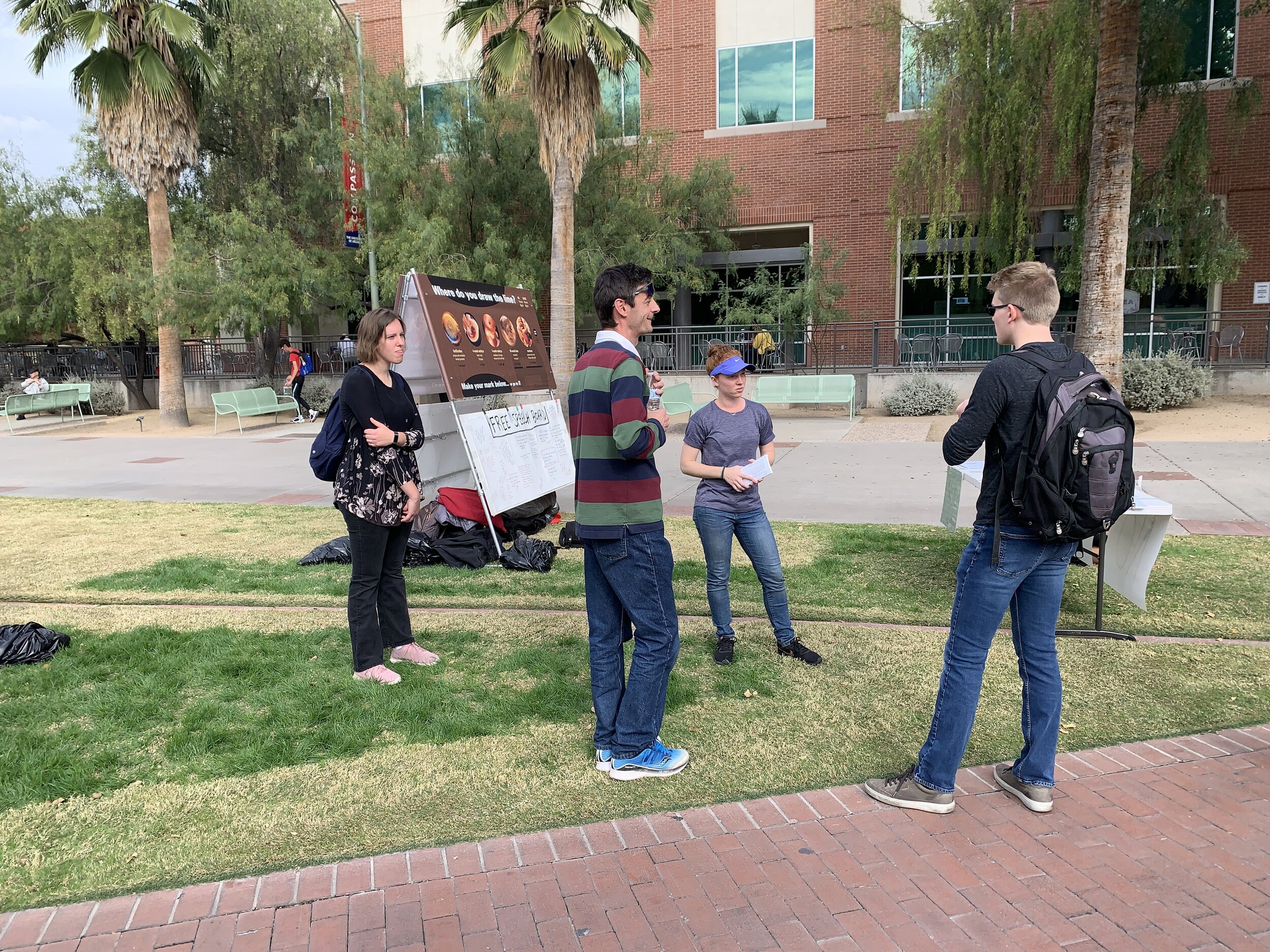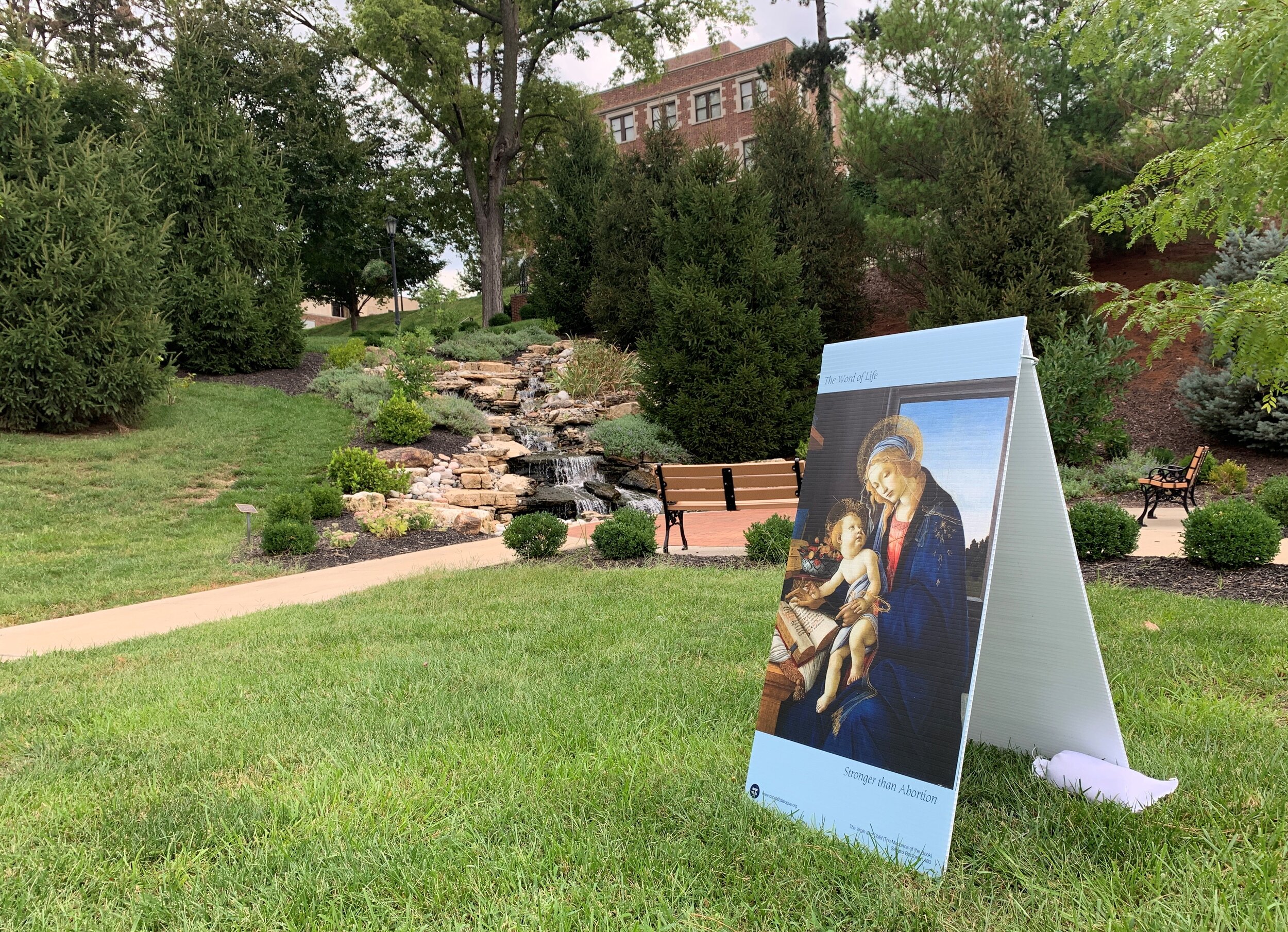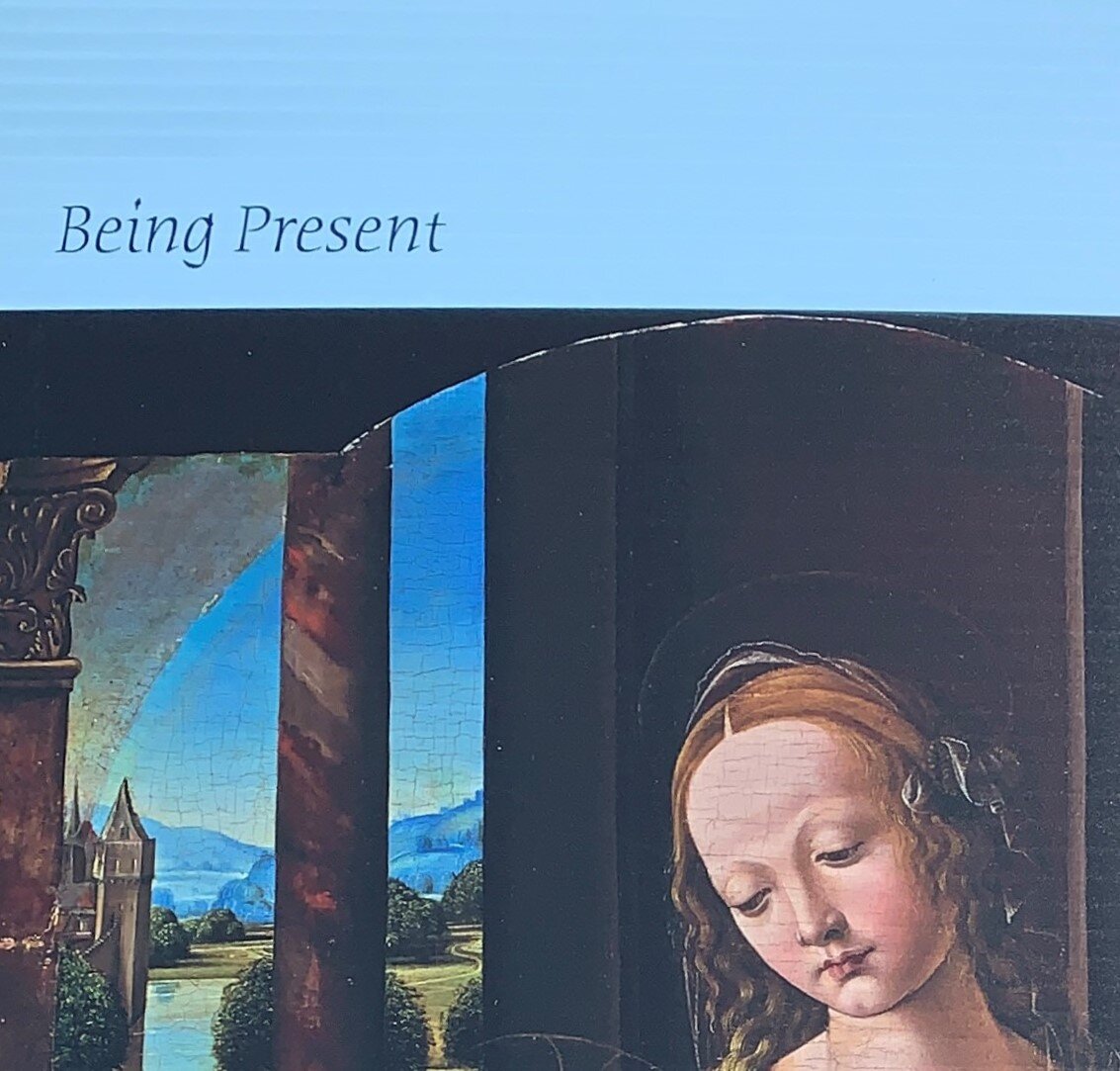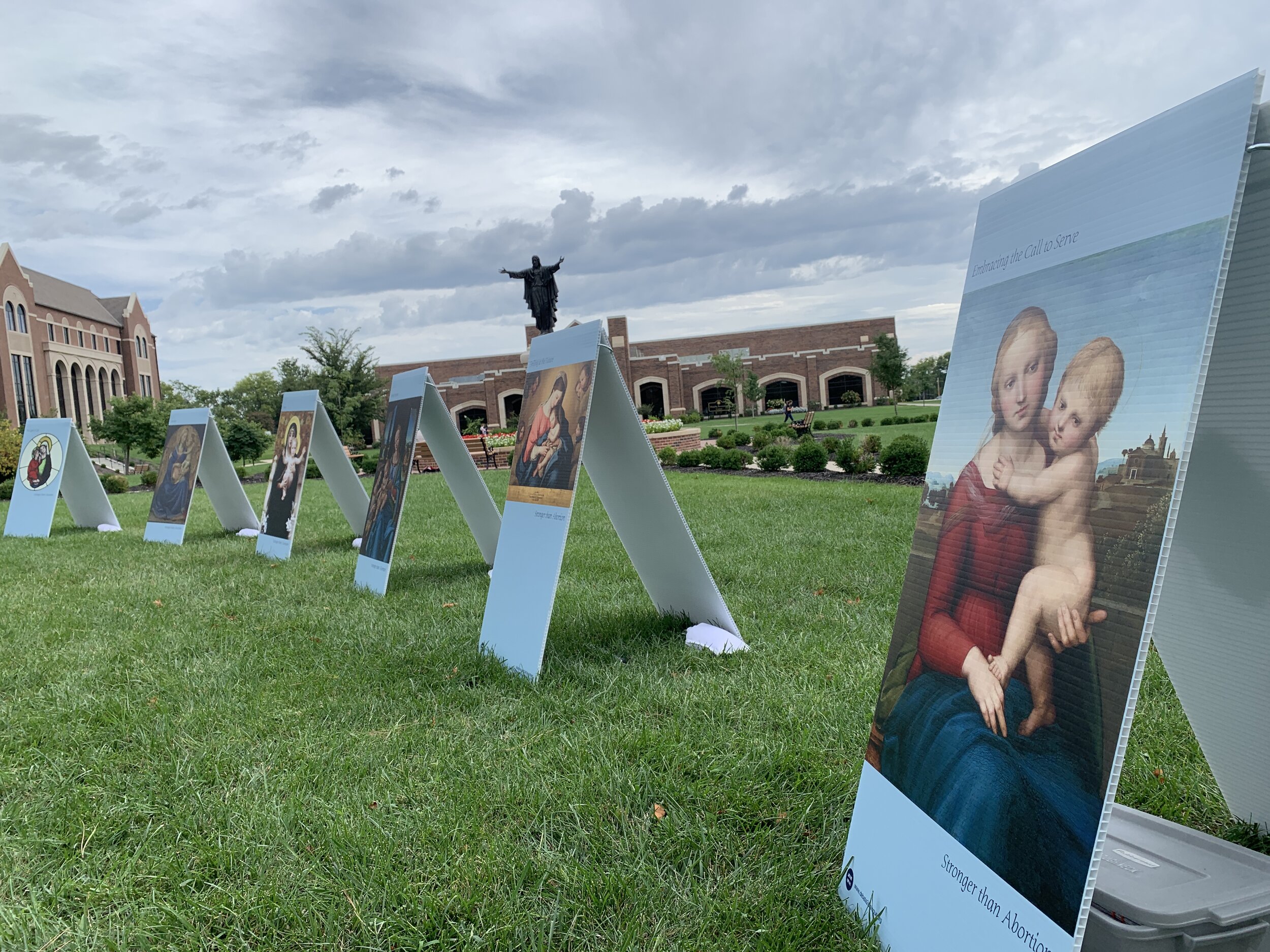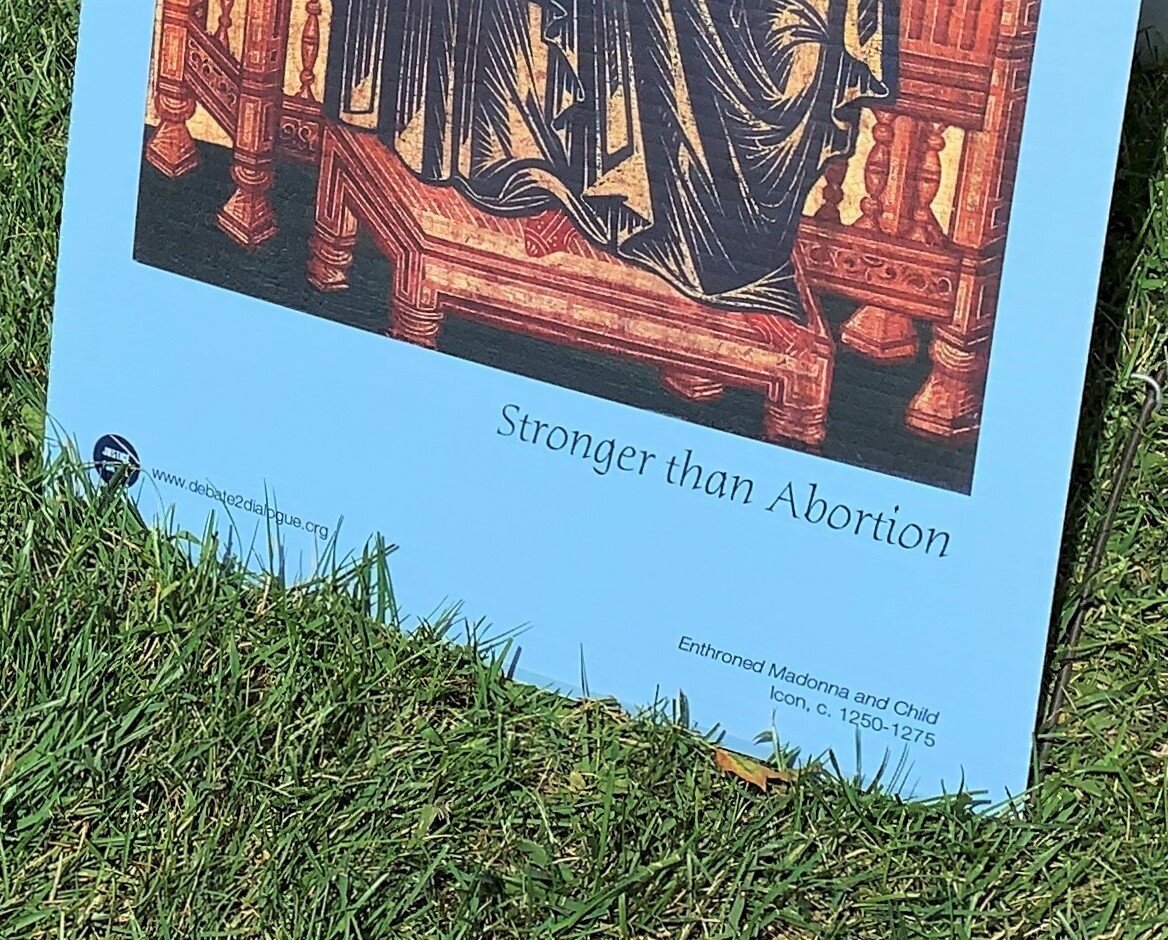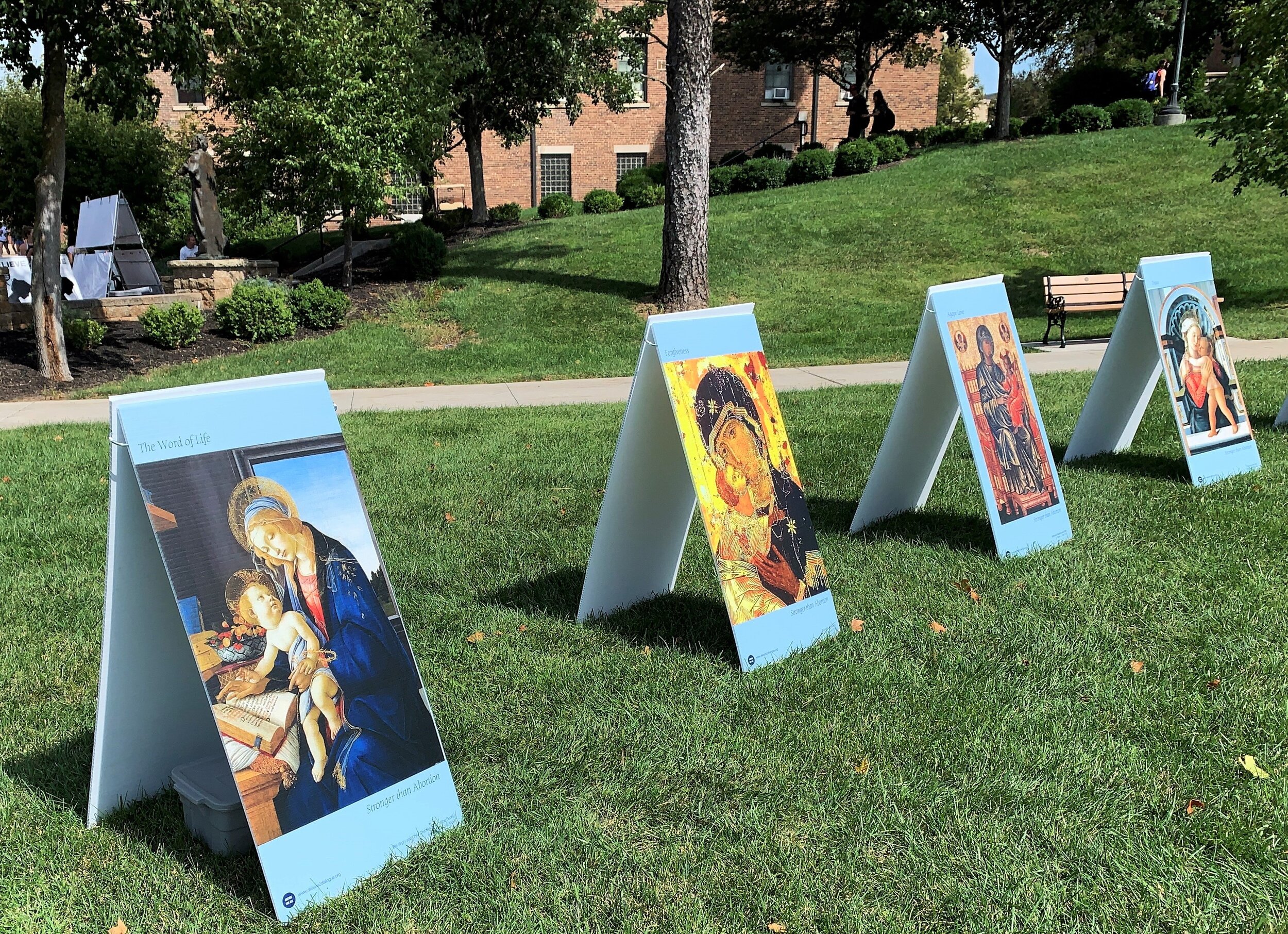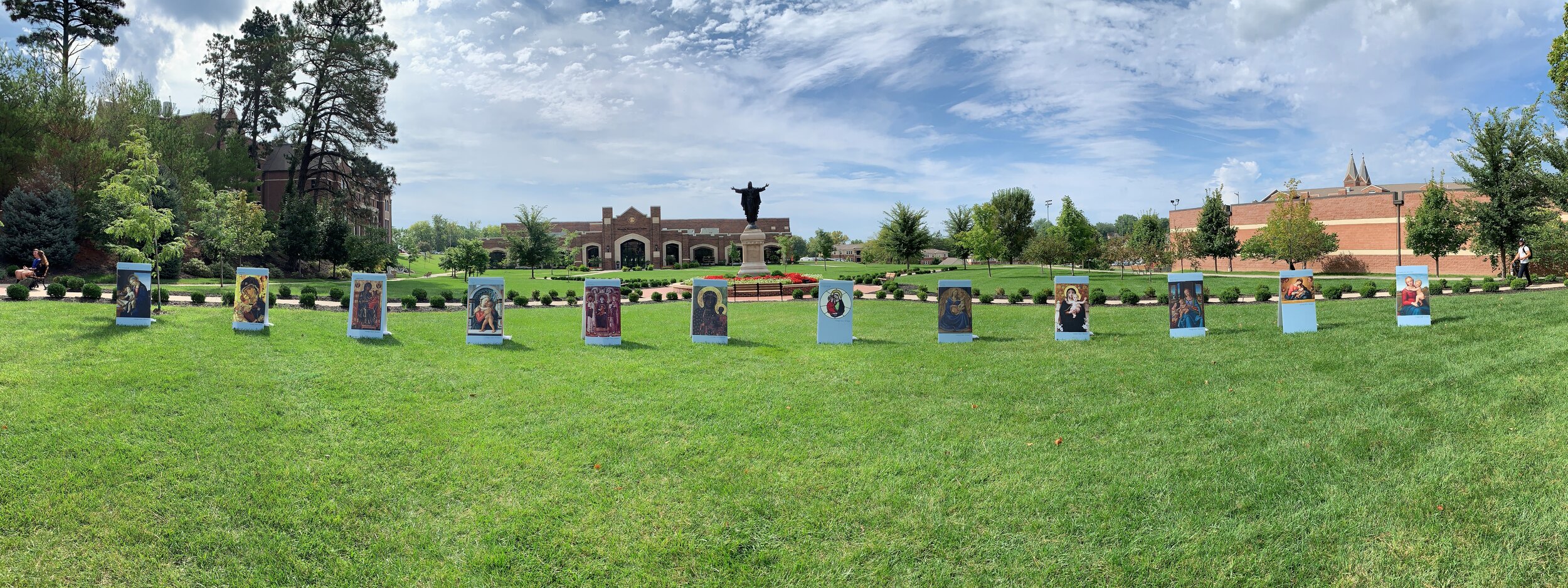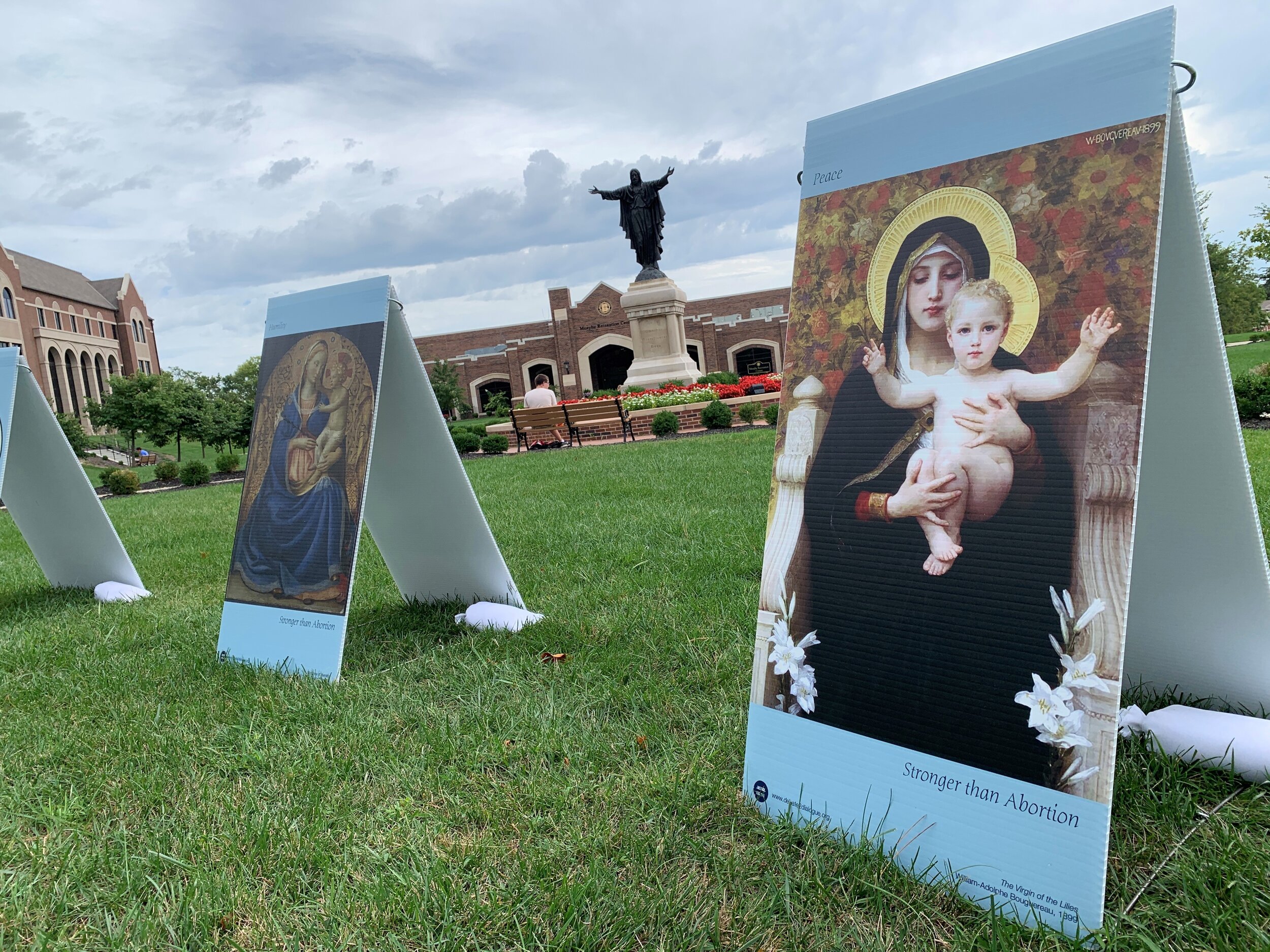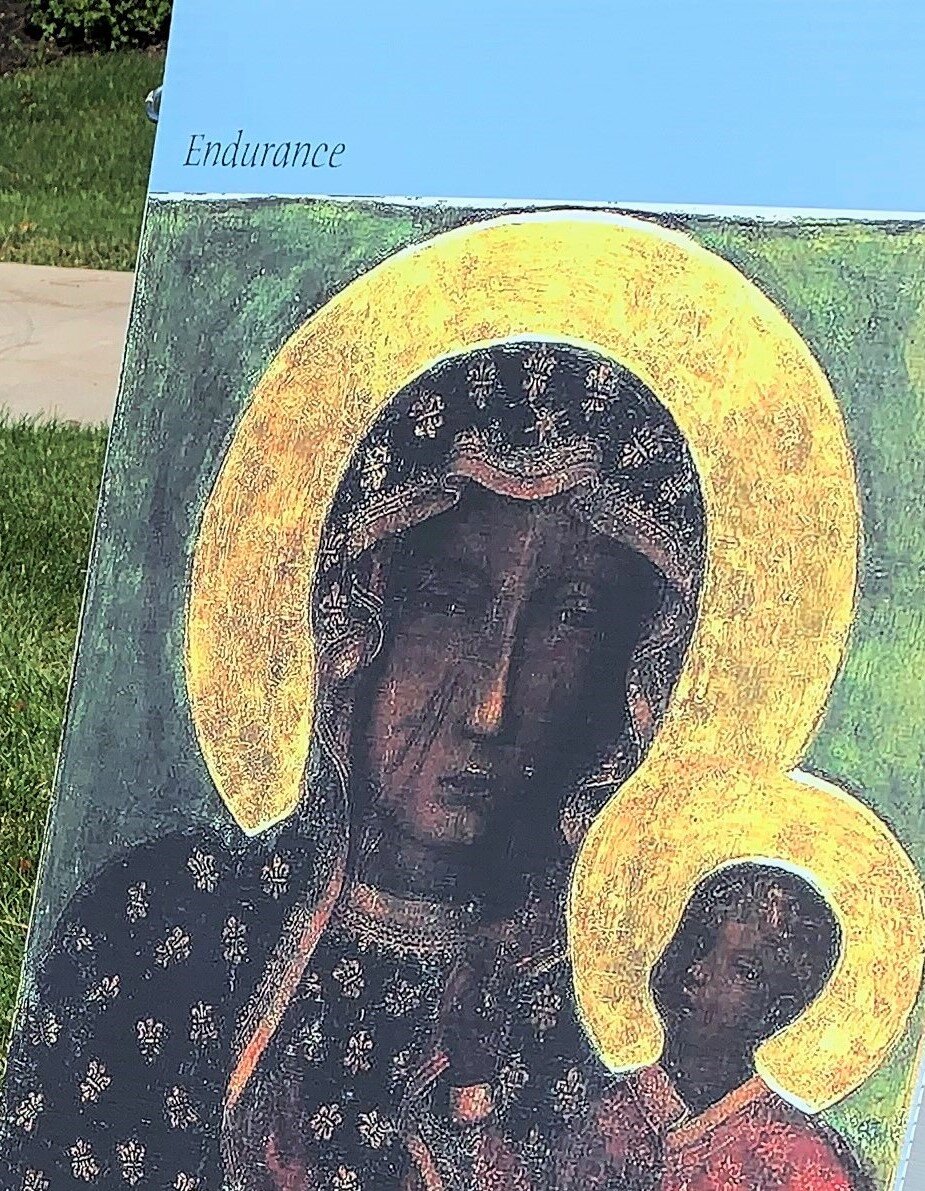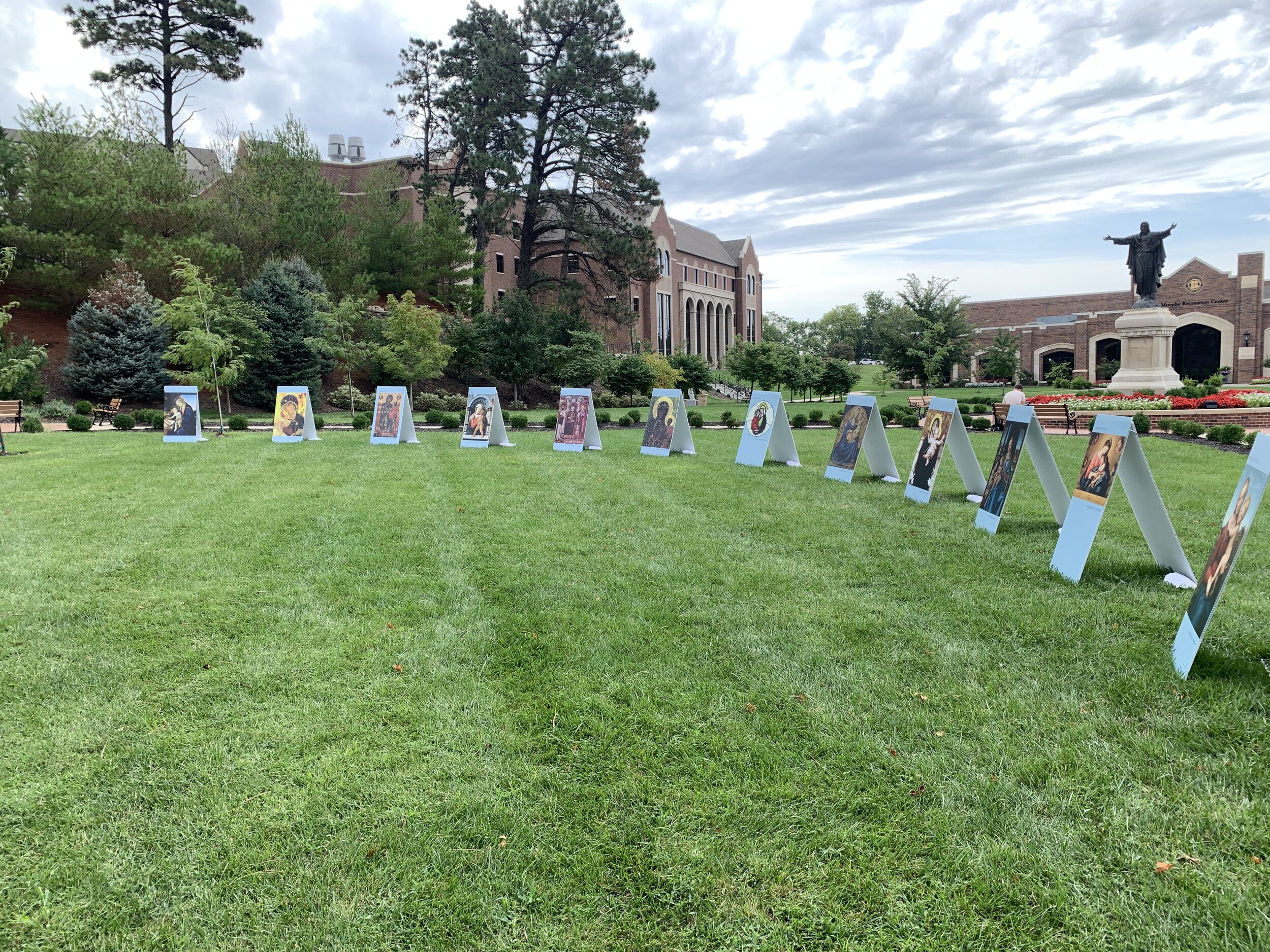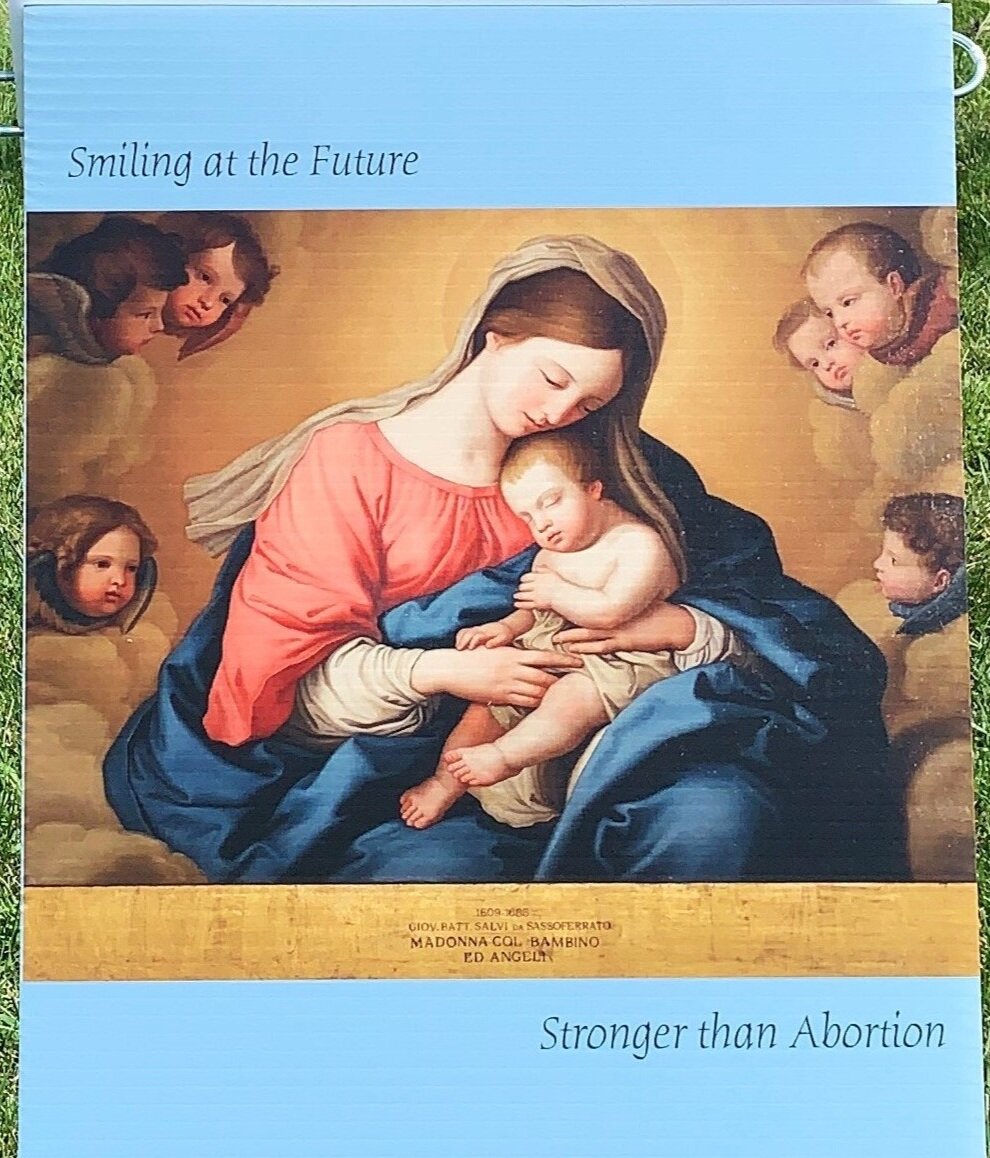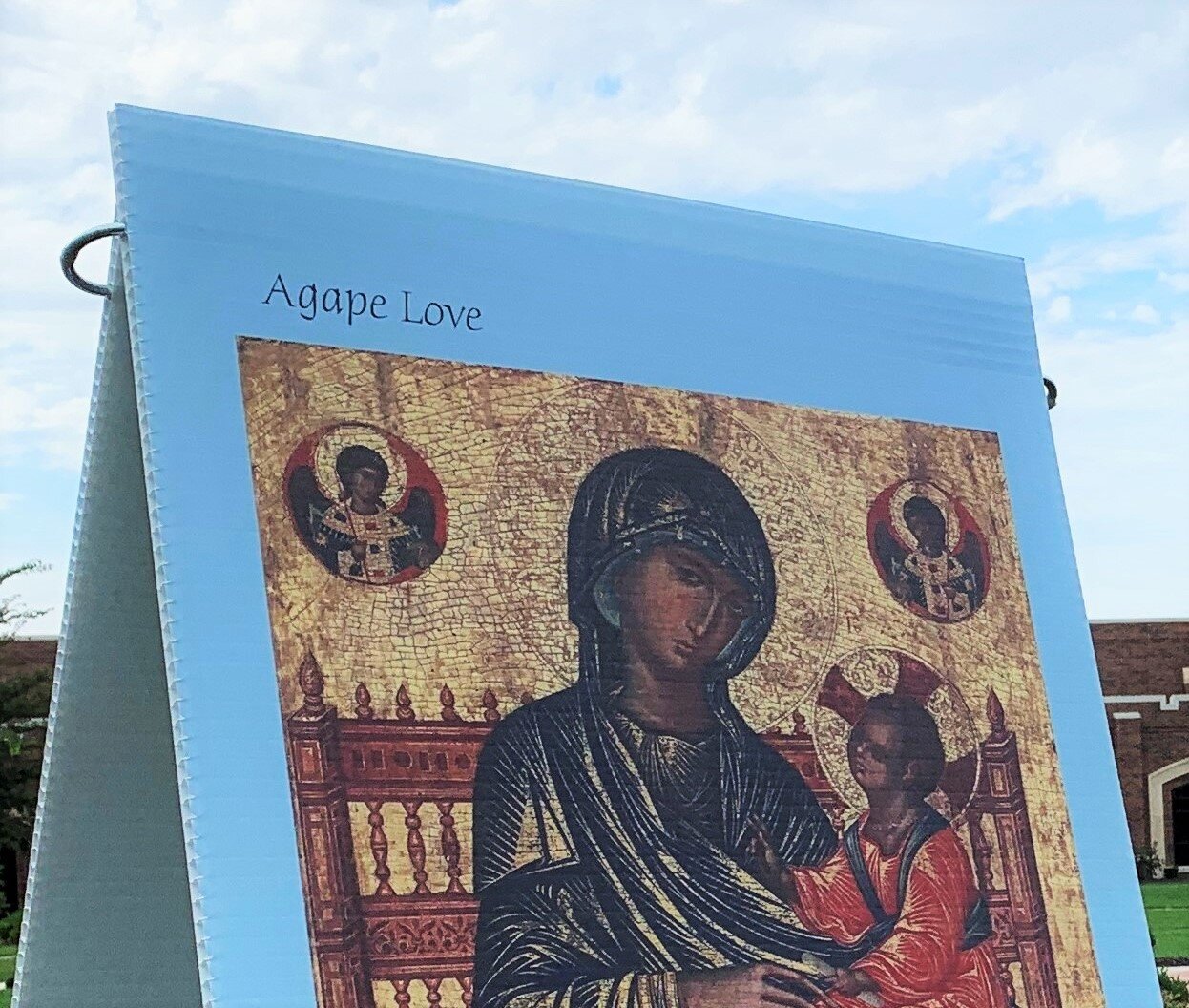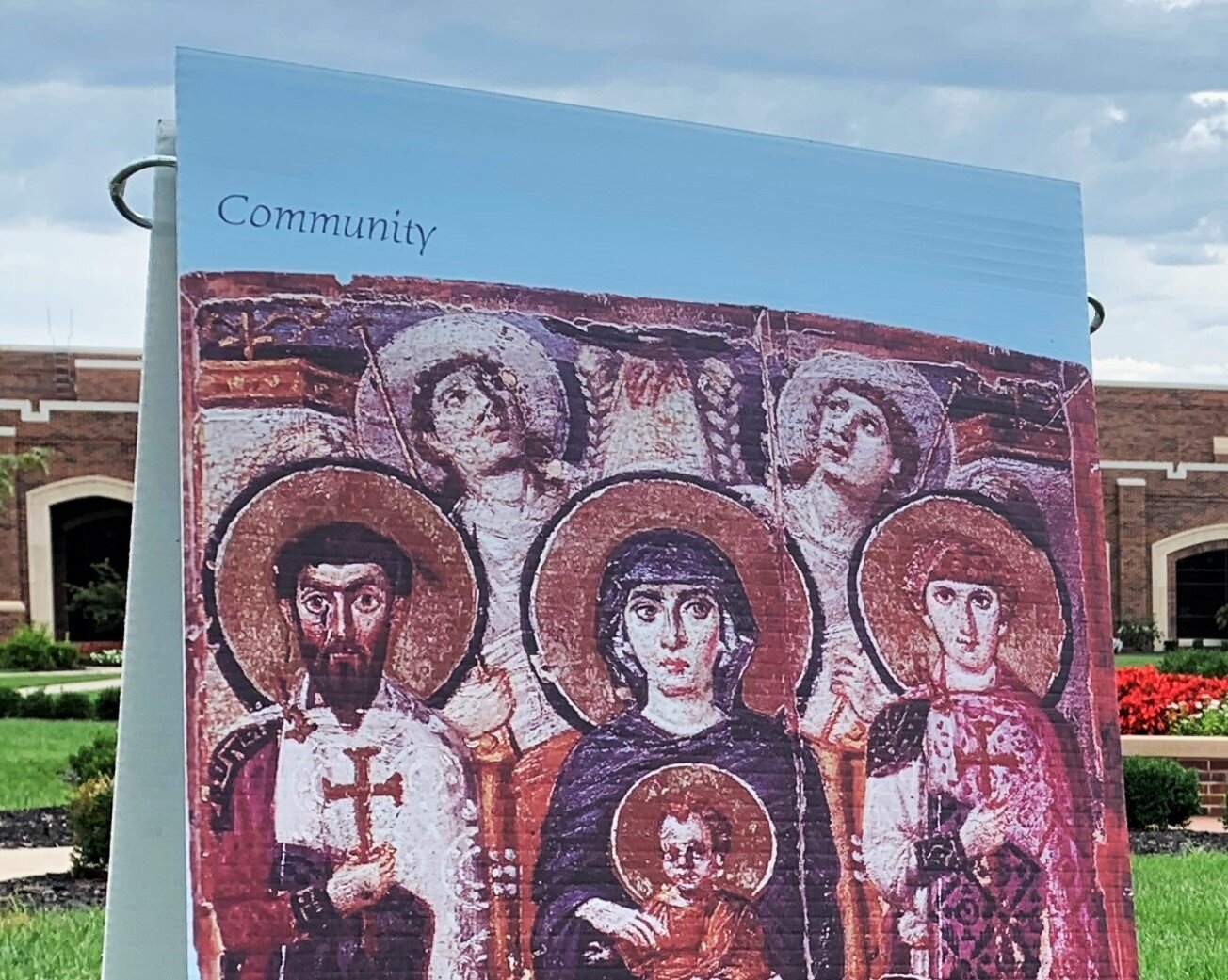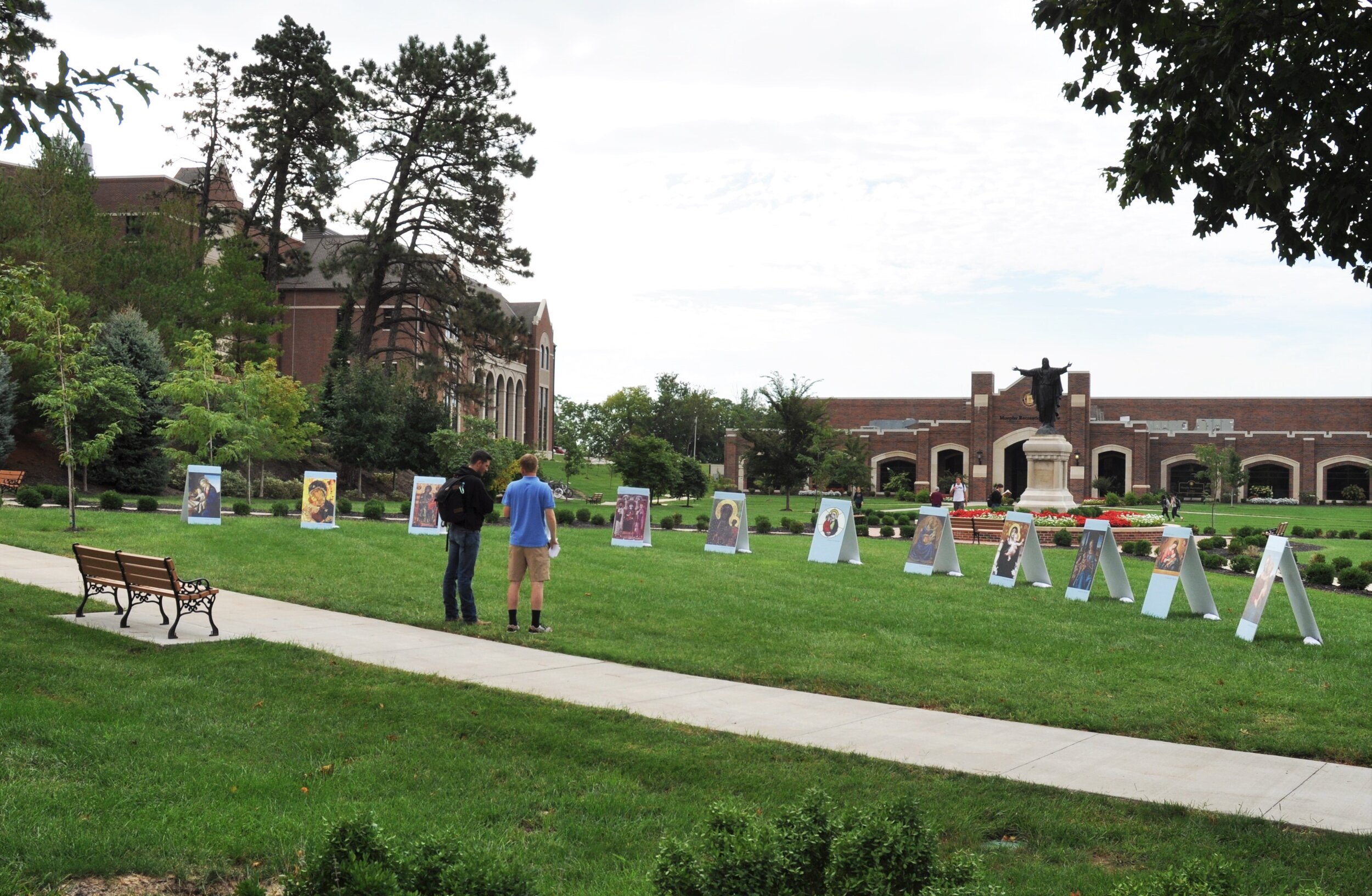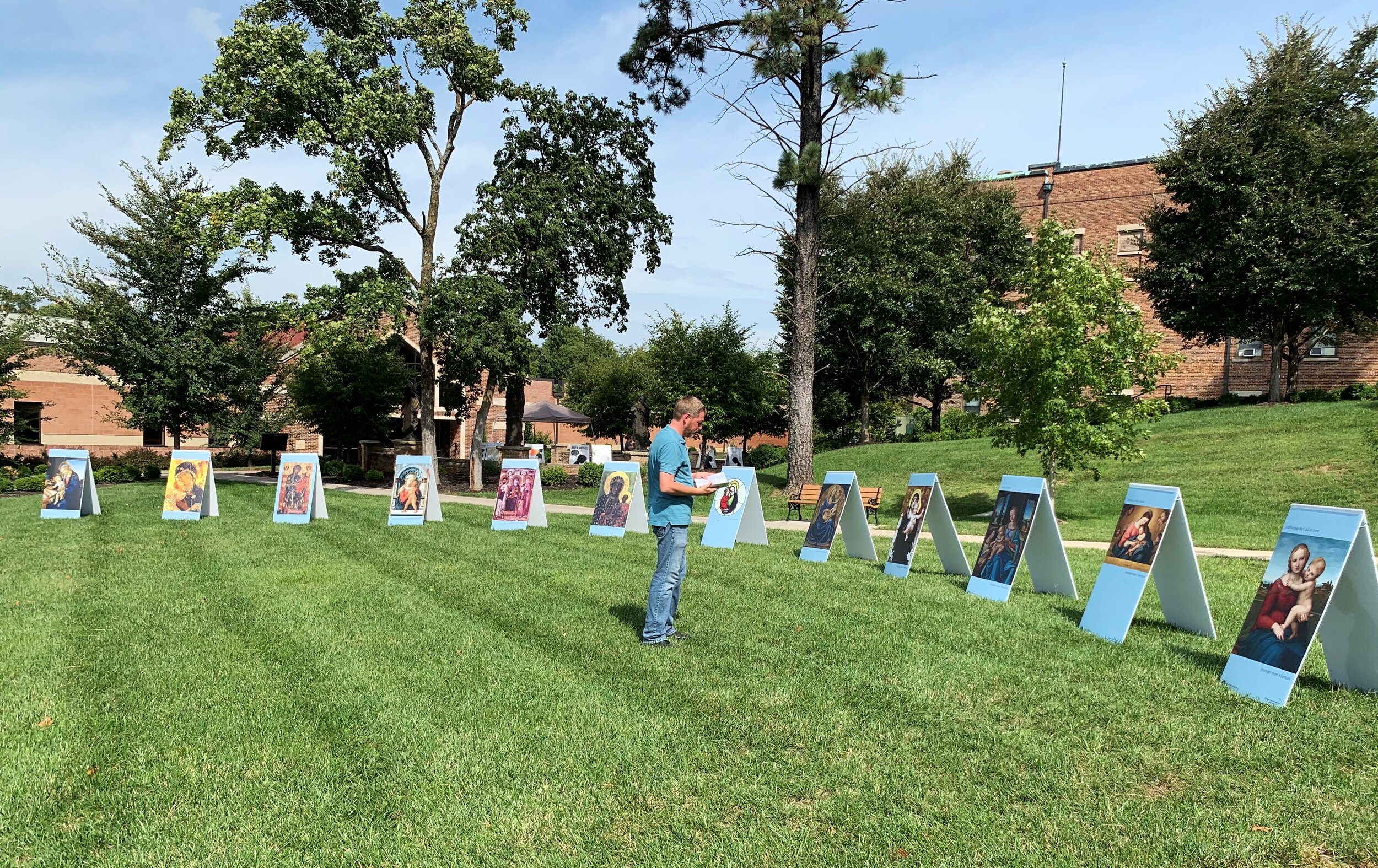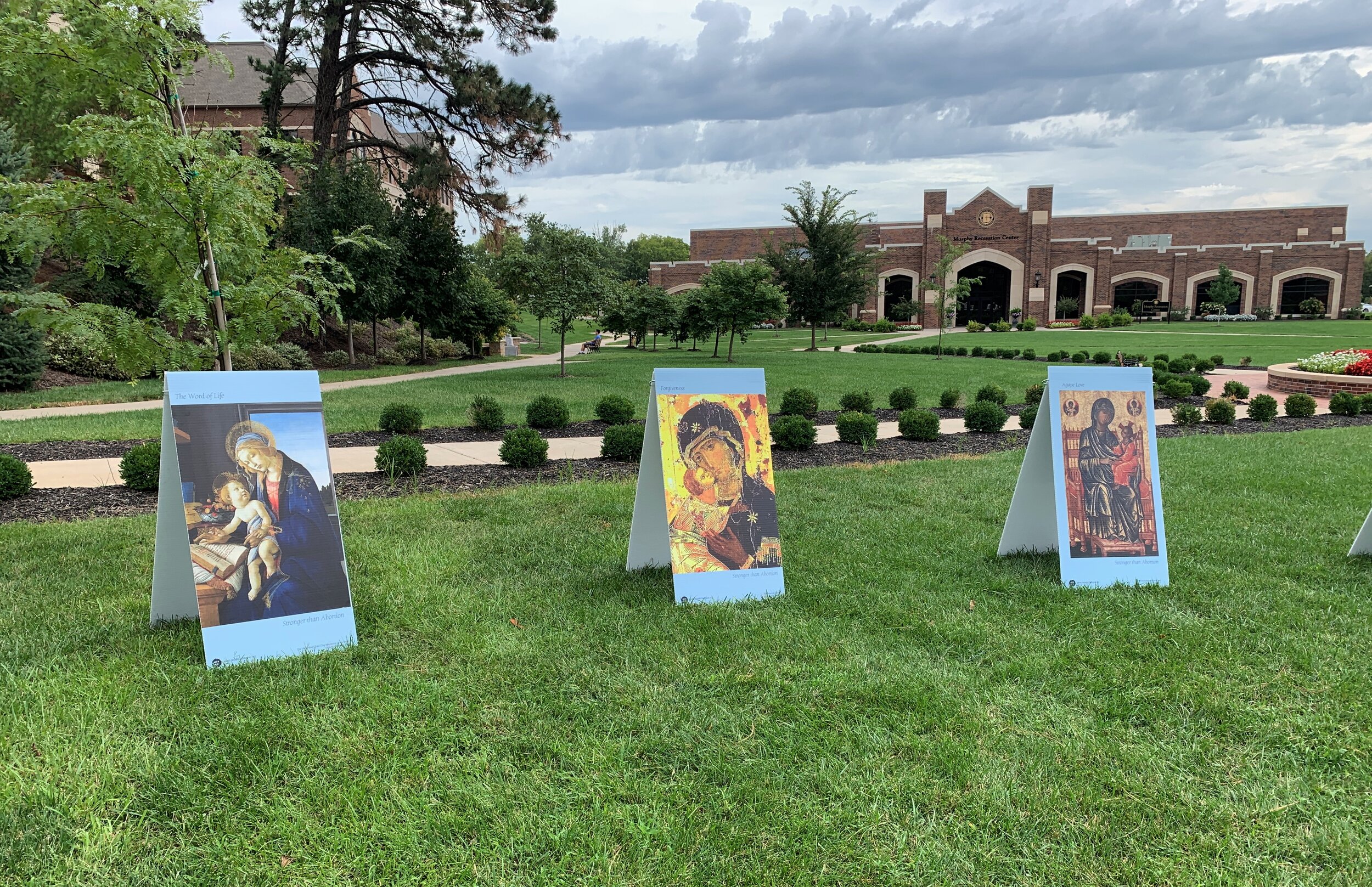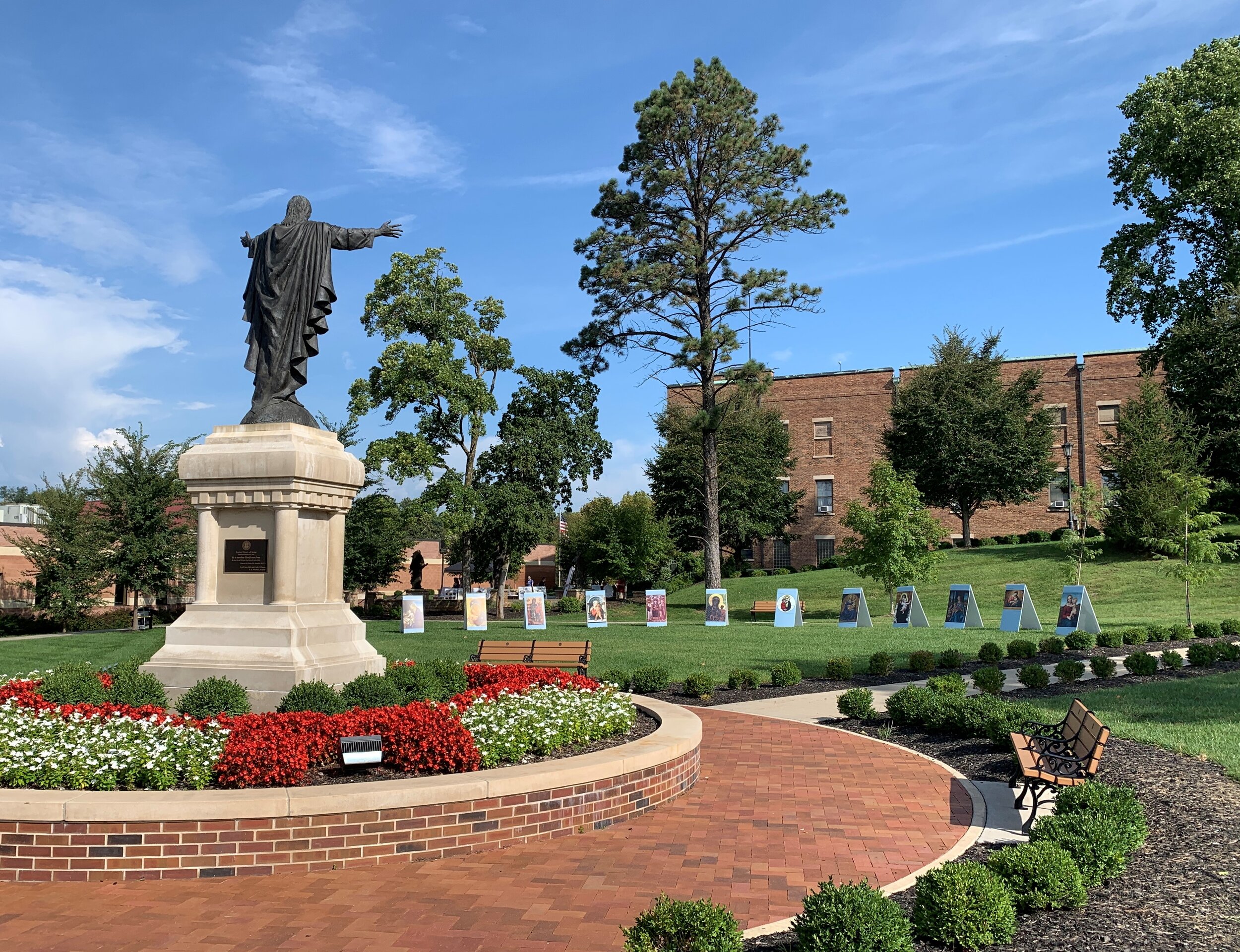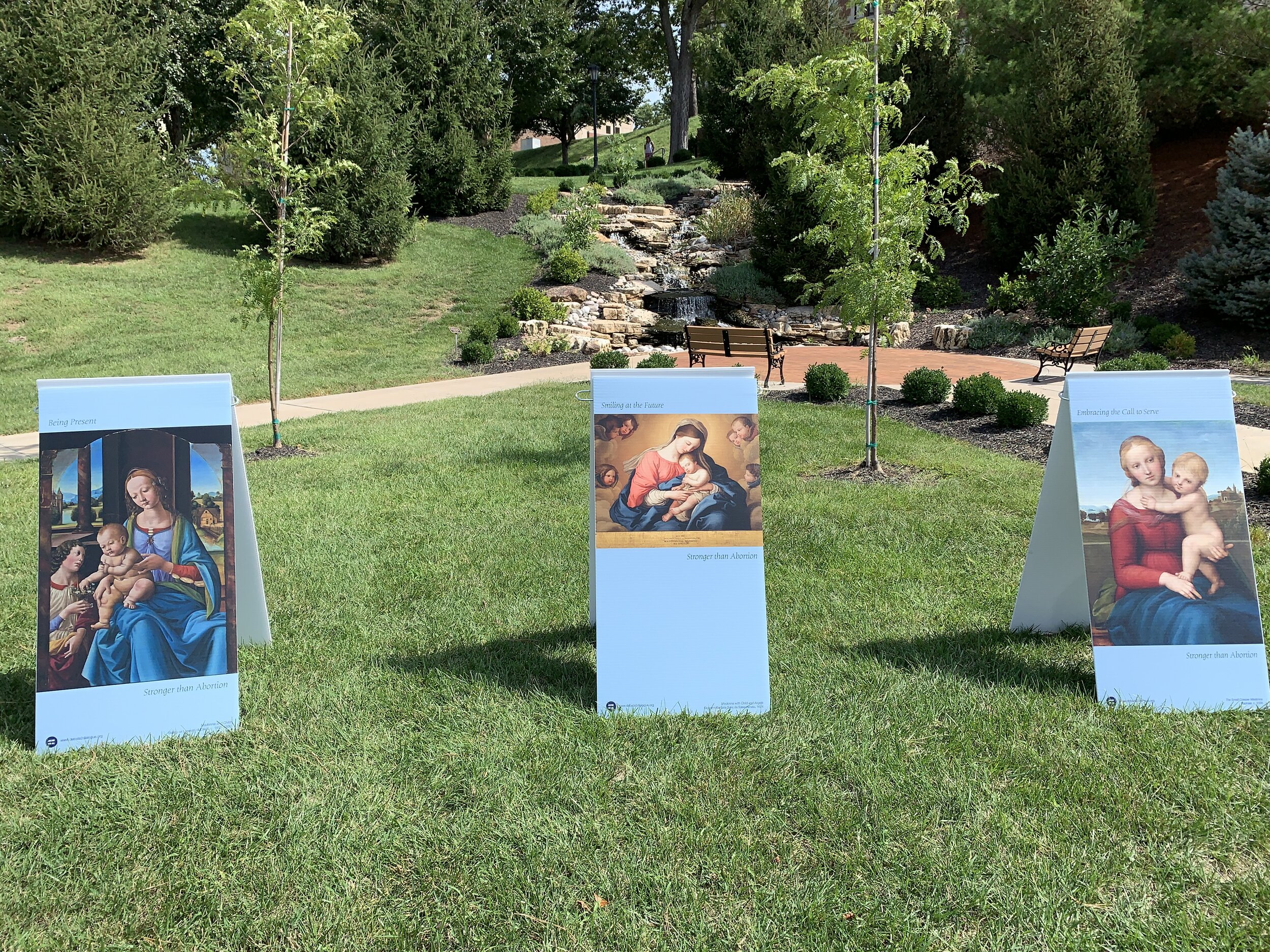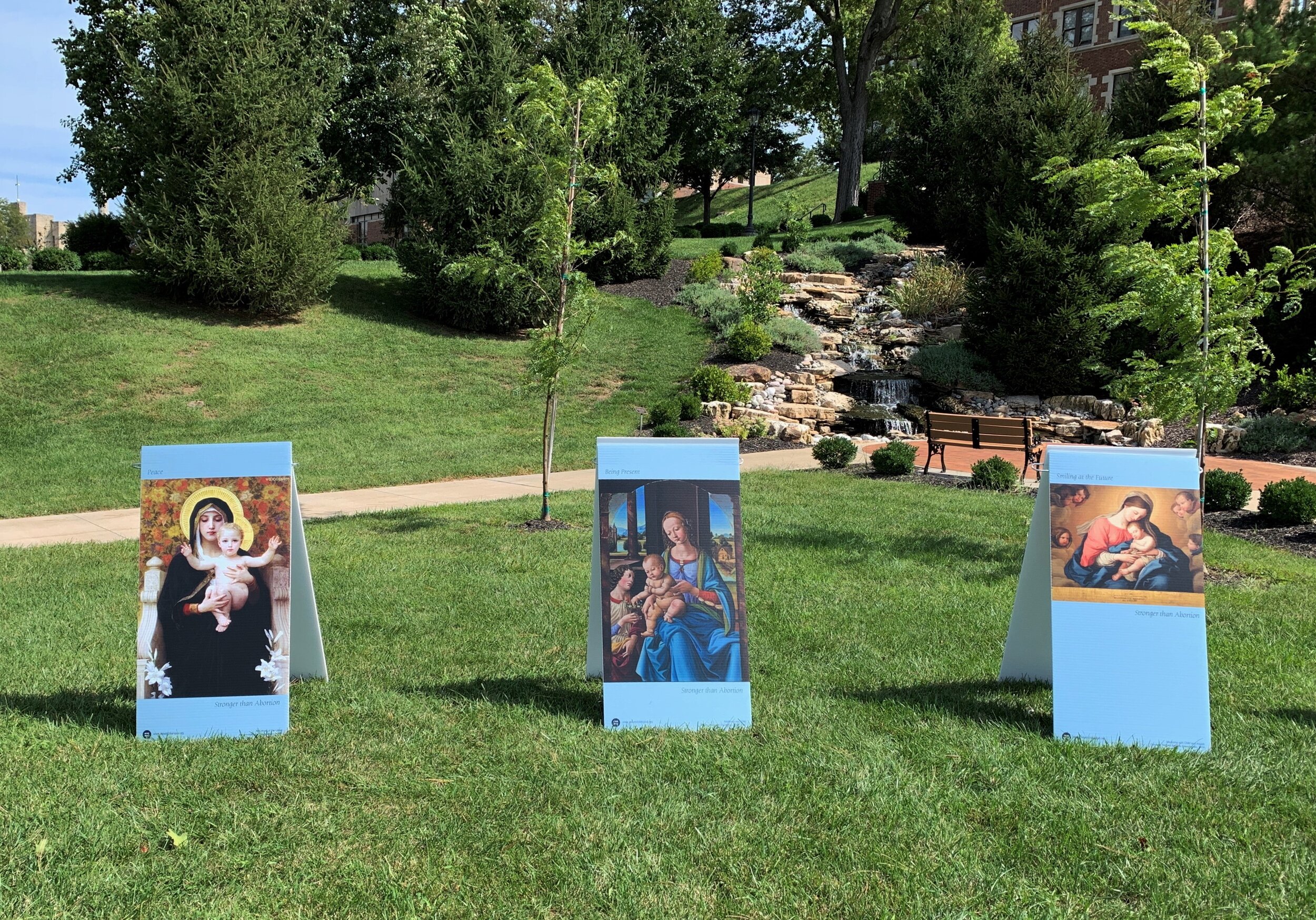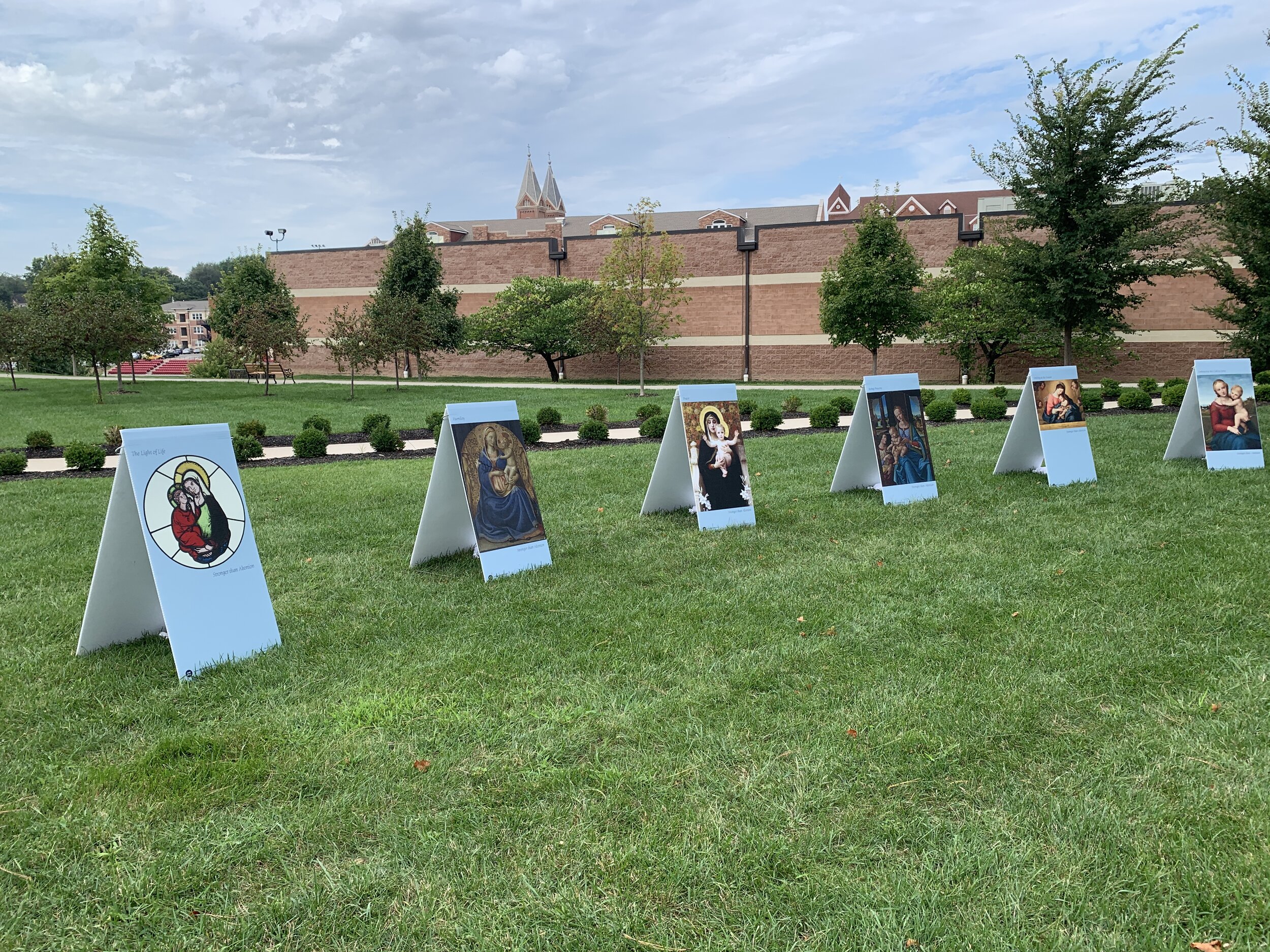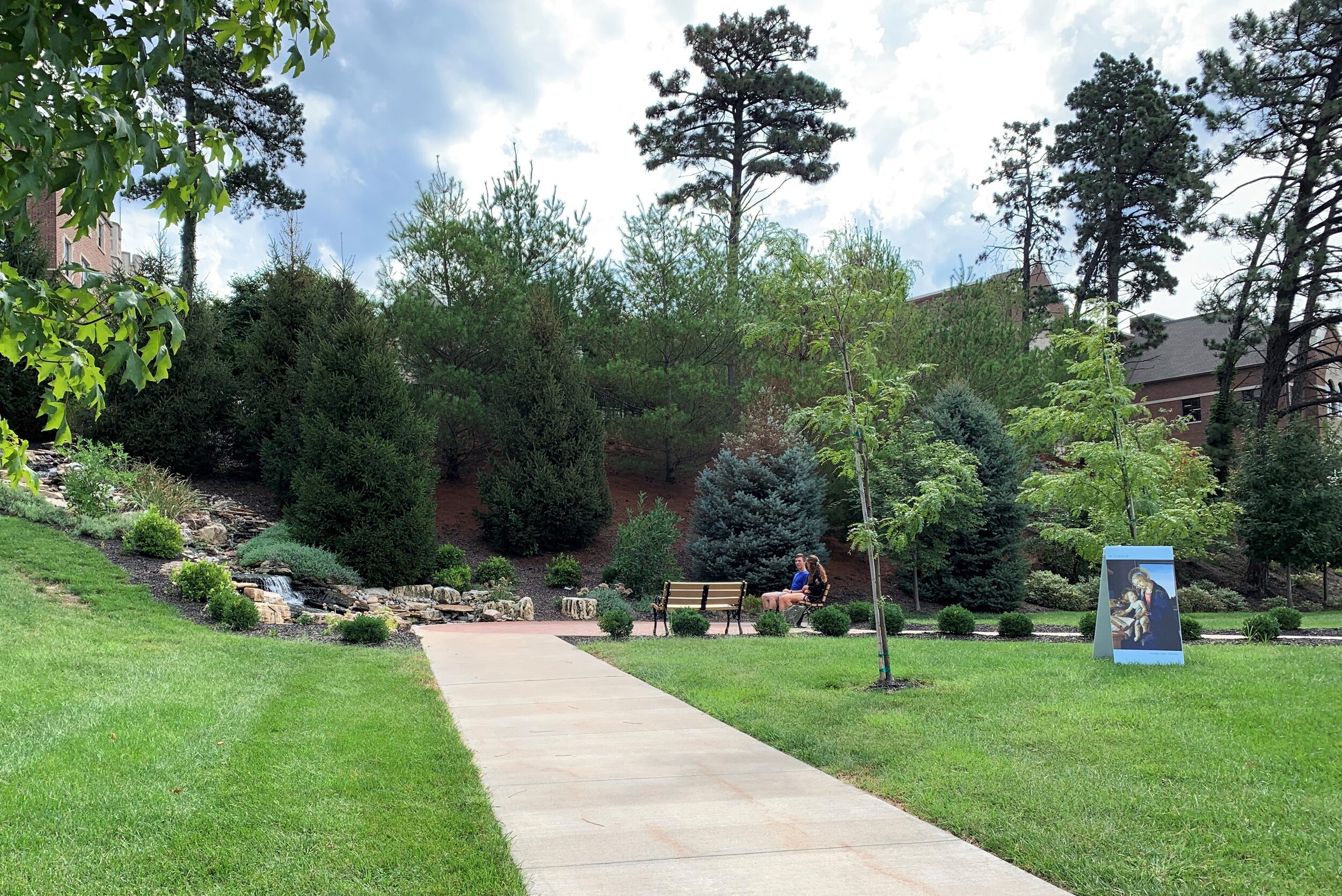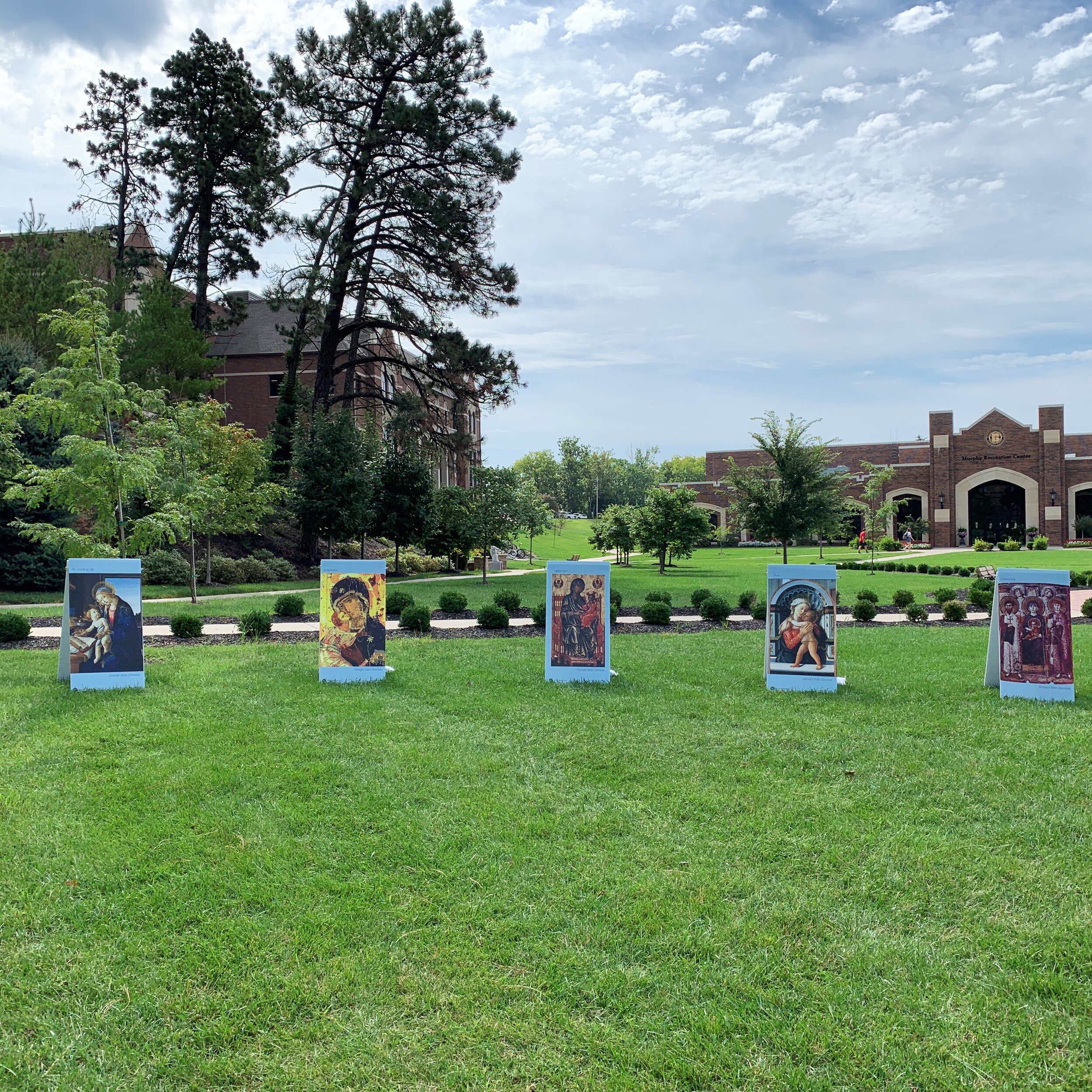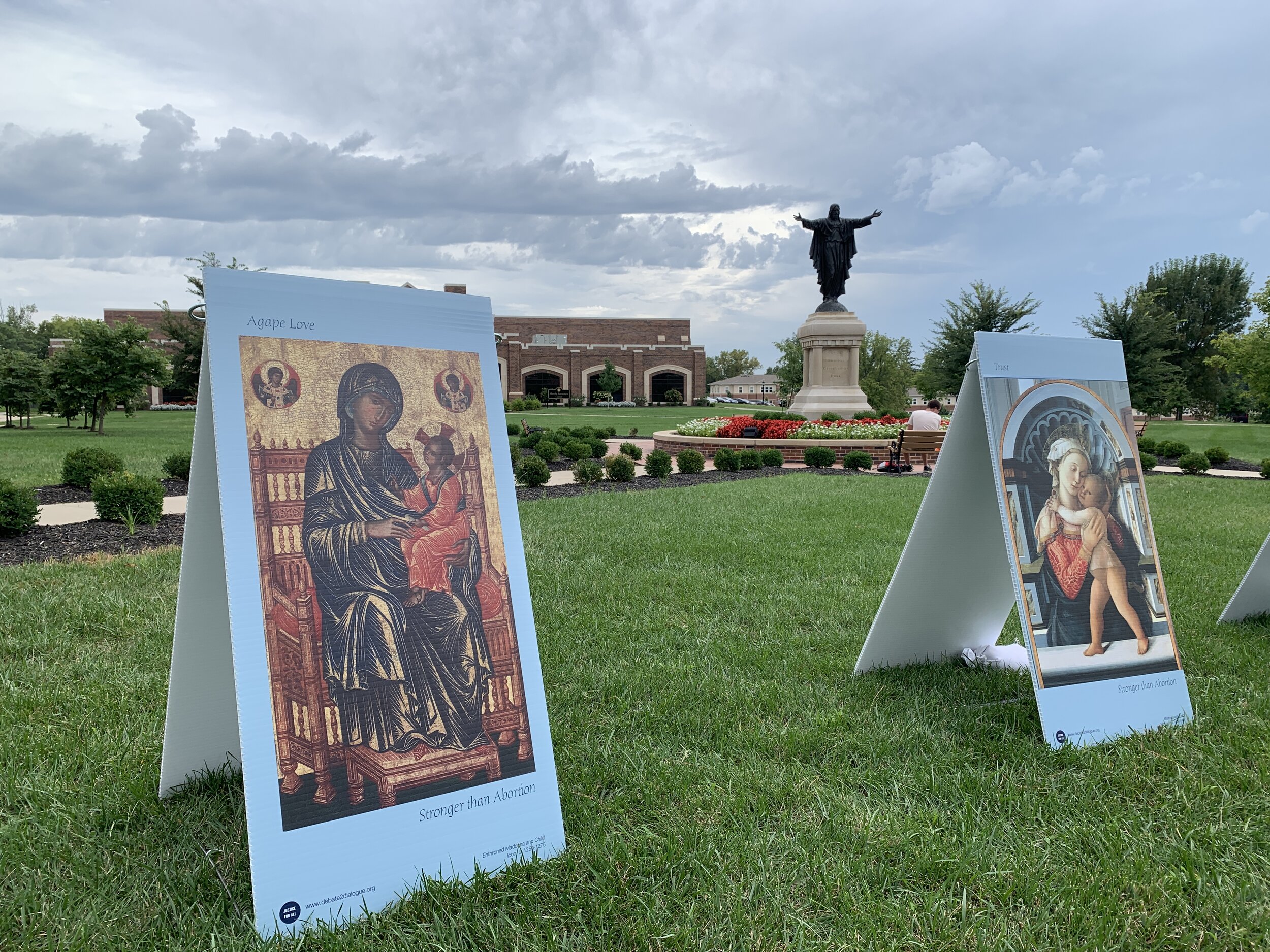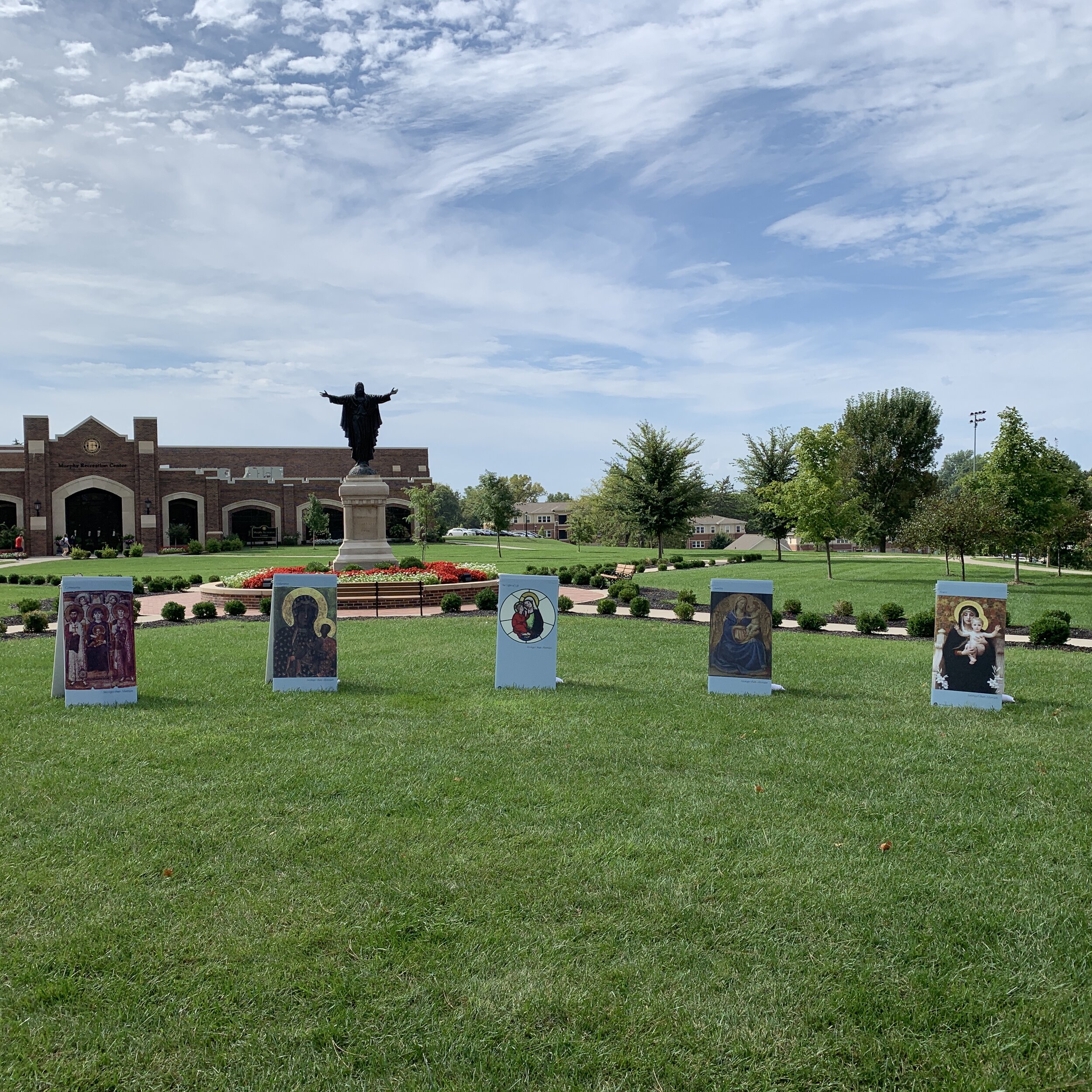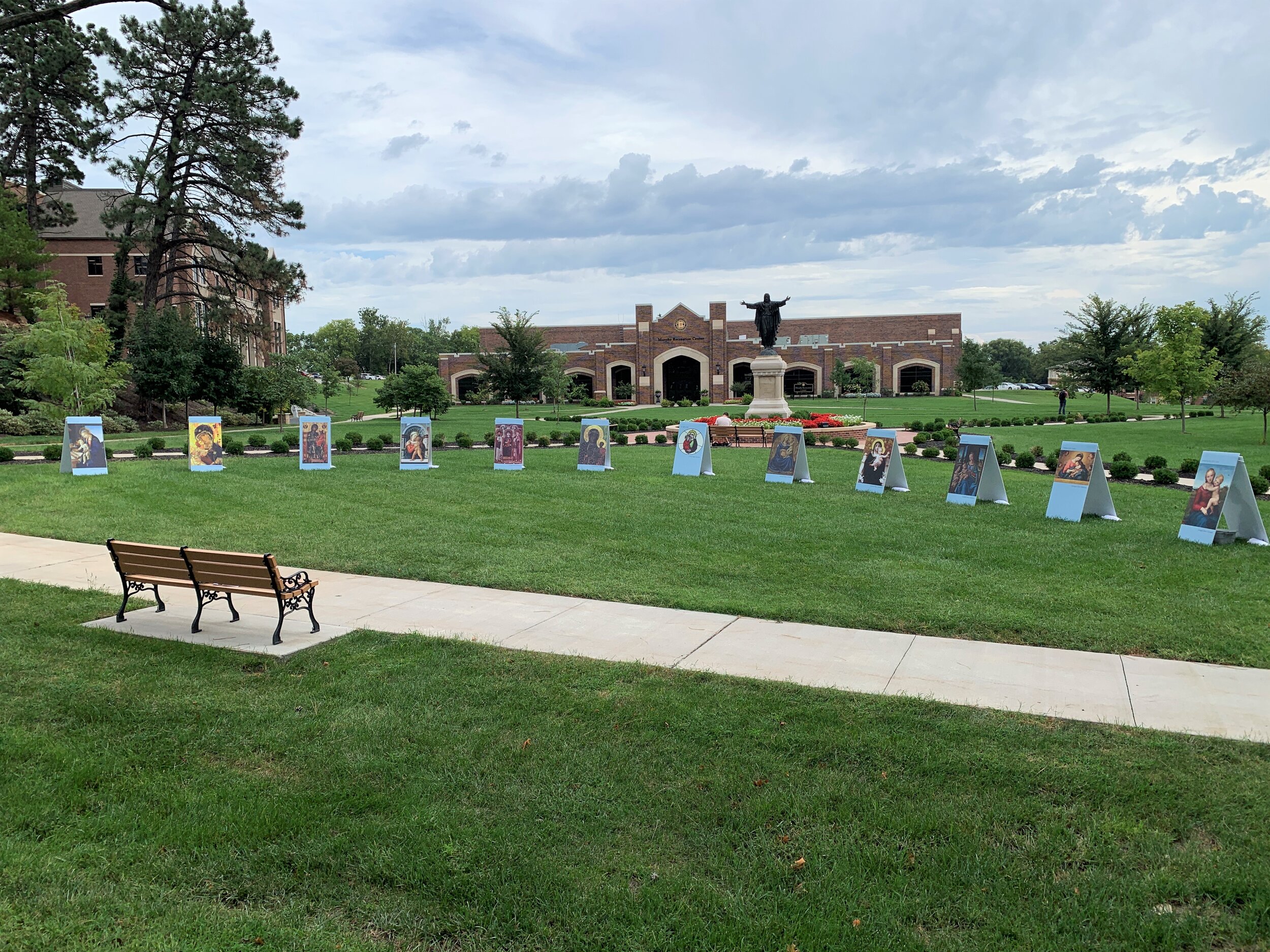Grace (center) with JFA trainer Kaitlyn Donihue (left) and veteran JFA trainer Rebecca Hotovy. (Rebecca is now working part-time behind the scenes at JFA.)
We count it a privilege to employ some of the most gifted people in the country. We also count it a privilege to serve the one true God, who is the giver of those gifts and who sustains each of our staff members in the midst of very demanding work fraught with painful realities. When God decides to guide one of our dear trainers away from our work, we are mindful of the great gift each person is who works even a day (let alone years) with us to save women and children from abortion.
Grace interacts with a student at Colorado State University in April 2018.
Recently JFA trainer Grace Fontenot sent a group of JFA supporters a letter about a transition she’s decided to make away from her work as a full-time trainer with JFA. Her letter includes highlights of her work, but I’d like to share a few additional reflections.
Grace has been a rock in our Wichita office, leading training events locally and traveling to California and Georgia and many of the states in between. In the three and a half years she’s worked full-time with JFA, I estimate she’s personally mentored over 100 pro-life volunteers through both “Seat Work” and “Feet Work” phases of our training program, given presentations to more than 1200, and personally created conversations with over 700 college students. I estimate Grace has spent over 500 hours in planes, airports, and in automobiles to show up to train pro-life Christians. She’s weathered days of outreach outdoors in 100+ degree heat and also in rain and snow. Yes, that’s right. That gumbo-cookin’, bright-smilin’ Cajun gal from Louisiana has created conversations with pro-choice advocates in the snow. As you can imagine, we are very sad to see Grace move on from her full-time work with JFA.
Grace excelled at the art of public speaking and mastered JFA content. She is a thoughtful, enthusiastic mentor of our students. She’s willing to try new things and embrace new ideas. She has a passion for women and for unborn children. She is serious about her faith, serious about doing quality work, and she’s humble when she realizes she’s made a mistake. She enjoys good ideas, good coffee, and good jokes. Grace laughs often, and she laughs heartily. We will miss Grace’s presence in our meetings and on our team.
We look forward to seeing what God will do in Grace’s life in the coming year, we pray for her ongoing discernment process for her professional life, and we look forward to seeing her join us for JFA events again as God allows it.
We thank God for Grace, and we thank Grace also for every early morning, late night, and difficult conversation she beautifully navigated with God’s help during her time with JFA. Thank you, Grace.
We also thank you for supporting Grace’s work by giving of your finances, by reading her updates, and by sharing encouraging words with her. JFA’s trainers, including Paul, Jon, Tammy, Jeremy, Susanna, Kaitlyn, and myself, will continue in 2020 to train Christians to actively love women in distress, unborn children, and those who disagree with us. We’ll continue to train Christians to create conversations that have the power to change hearts and save lives. We pray that as you reflect with Grace on the good work she’s done, that you’ll consider continuing to support the work God is doing through JFA. Thank you.







